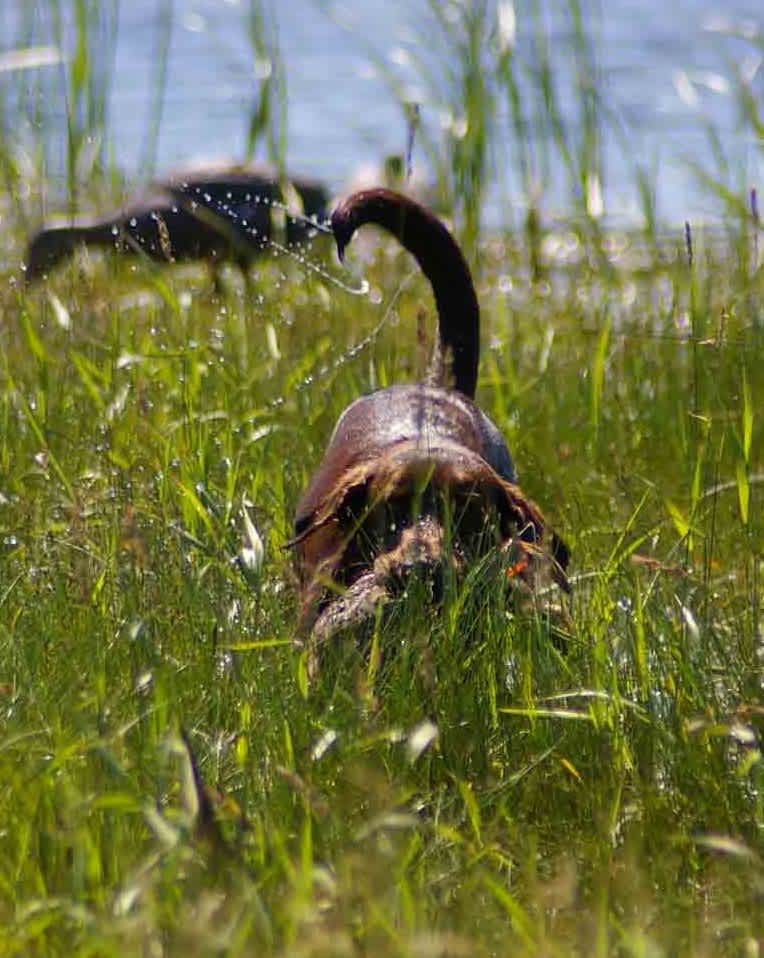Old Dog, New Tricks?
Jeff and Katherine Fuller 01.31.13

A question that comes up often is, “can you teach an old dog new tricks?” With that people want to know whether their dog that has never hunted can be taught to hit the field in search for the owner’s chosen quarry. The answer is simple–YES.
Just because your hound has not been in the field doesn’t mean you should preclude your four-legged buddy from accompanying you. With that said, a lot of work needs to be done first. Like any trained response you have to first do the training. Just because a dog comes from hunting lines doesnt mean it will hunt for you. Yes, the optimal word in that sentence is you! Well-bred hunting dogs are genetically disposed to have prey drive. Retrievers also have the insatiable drive to retrieve, pointers point etc. What the human end of the team needs to ensure is that our four-legged buddy doesn’t go out self-employed, or hunting for his/her own interests.
Obedience is the foundation of any good dog, and is a must for hunting dogs. A dog needs to understand that they need to listen and obey their partner in the field at all times. A good recall, sit command, and heel are needed prior to hitting the hunting landscape. Most think their hounds are great because they sit and come in their yard. The biggest thing needed from that point is to take your dog to areas that aren’t so familiar. Taking your future field partner to a park, into town and eventually into a hunting atmosphere are areas where the trainer can reinforce their commands and expectations for their future hunting pupil.
Once we have our commands down, an electric training collar is also a great aide in making sure our commands and demands are met. Taking a dog in a place with distractions is a major test of any training program. Using an e-collar to reinforce commands before hitting the field greatly assists the dog’s understanding for all situations. The easy way to think about it is that the e-collar is like a pager. When the four-legged hunting hound of fury gets so encompassed with the hunt that they forget things, we as the handler and team member can give them a gentle reminder.
The other and last part of the foundation of our training is our trained retrieve method. This entails having our dog fetch on command and understand when they are supposed to bring our prey, whether it’s a bird or big buck horn. It’s a slow process using differing methods that convince our hunting companion that they will gain great rewards by bringing back what we are hunting. It’s also a great step when looking at things through the view of conservation. If a dog brings back our downed game, it was not harvested in vain.
All of the above training principles are the same as with a young dog. The only difference is you may have years of bad habits that make your older dog a slightly bigger challenge. But in the end you will be glad you offered you four-legged buddy a chance to excel at what they were bred for!
This article is brought to you by Soggy Acres Retreivers.

